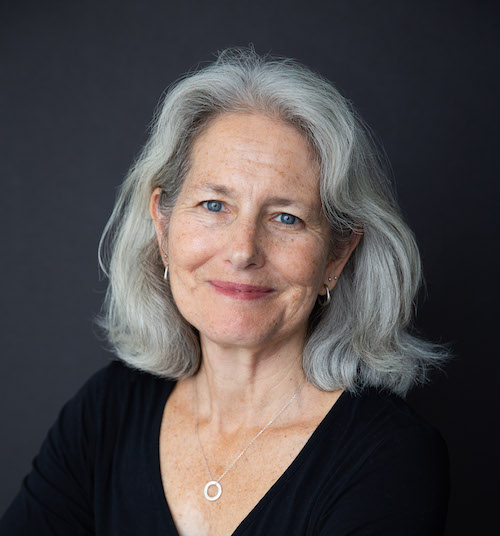On Writing Another Novel [1]
November 14, 2022Essay by Rebecca Steinitz
When Your First Novel Doesn’t Sell—and You’re No Spring Chicken

The rejected first novel is an old story. Perhaps that explains why the version I tell includes every step toward almost: the beta-reader love, the manuscript requests, the conversations with agents, the drama of the lying first agent, the support of the devoted second agent, the conversations with editors, and after all that . . . the rejected first novel. In other words, the same old story.
After that story comes the inevitable sequel, which begins with the same old advice: write another novel.
But here’s the thing: I’m 58. It took me eight years to write my first novel and five more not to get it published. Imagine how old I’ll be when I finish another.
“Remember Frank McCourt!” people say. “And that woman in her eighties who published her first novel in the ’80s!” Spend a moment Googling, and you’ll find pages of listicles featuring later-in-life debut novelists. Bram Stoker published Dracula at age 50! Little House in the Big Woods appeared when Laura Ingalls Wilder was 65! You can do it, too!
Besides my husband and children, novels are the great passion of my life. From the age of 6, when I first achieved chapter-book proficiency, to today, when a stack towers on my bedside table, I have never not been reading a novel—or many. As an English professor, I taught novels and wrote about them for academic journals. When I left academia, I kept writing about novels in a books column and in reviews. I am known among friends and family for my novel recommendations and gifts. For decades, people asked me when I was going to write a novel. In turn, I wondered if I would ever write one.
I used to tell myself—and others—that work and children and life were why I didn’t write novels. But I wrote plenty of other things in those years: an academic book; essays and articles about education, parenting, politics, and culture; blog posts, Facebook posts, and tweets. Secretly—and shamefully—I knew the real reason I wasn’t writing a novel was that I didn’t have an idea for one. Not a story, not a scene, not even a seed. It seemed like I had everything I needed to write a novel except a novelistic imagination.
Then a story I’d always known transformed itself into a novel idea, and at age 42, inspired by NaNoWriMo, I wrote the beginning of what eventually became the first 50,000 words of a novel. It was loosely based on my grandparents’ wedding night in post-World War I Berlin, when, according to family lore, my grandfather told my much younger grandmother that he had a mistress and two children. I was finally, late in life—but hopefully not too late—on my way to writing a novel.
And then I didn’t write it. The plot was (and still is) great, but I didn’t know anything about post-WWI Berlin. This might easily have been remedied by research, but I had work, children, life . . . and a strong preference for reading novels over researching early twentieth-century German history. I started to wonder if now that my imagination had emerged, I wasn’t going to write a novel because I lacked perseverance.
Then, one day, as I was running through the neighborhood where I grew up, marveling at all the houses that now had skylights, life once again sparked a novel. This one was about a famous lawyer and his second wife, who live in one of those skylit houses and die in a freak accident, leaving two sets of children from his two marriages to deal with their grief, each other, and a house with a skylight.
This time, there was no need for research—the novel took place in a time and space I knew like I know my own life—and this time I persevered, only to end up with nothing but an unpublished novel to show for my efforts.
It’s one thing to put aside your first novel at age 22 or even your first three novels by 33. We’ve all read those stories about novels rejected by a dozen publishers that end up as record-breaking bestsellers (say hello, Harry Potter). They aim to be as inspirational as the aforementioned listicles, and I’m sure they work for some people.
But although the disappointment of a failed novel is acute at any age, hope for a future novel is harder to rouse when you’re older. And it’s particularly hard when it takes so long to arrive back where you started: as a writer who has never published a novel.
Except now I have written a novel. Not only that, but I’m overflowing with ideas for novels. Besides the Berlin wedding book, there’s the woman butcher romance, the best friends/switching husbands/genetic testing multidecade saga, the one about two brothers who start a rock band that is on the verge of fame and fortune when one of them dies in mysterious circumstances, and…well, the last idea is not for sharing because I’m actually writing it.
If I’ve made it to 58 without publishing a novel, I presumably can make it the rest of my life. But now that I’ve written a novel, I can’t imagine the rest of my life without writing another.

Talking Writing gives a shoutout to NaNoWriMo [5] and all the writers who use November, National Novel Writing Month, to stay motivated. Keep writing!
Art Information
- “Nano Rhino 2015: It's in the Cards [6]” © Michael Clemens; Creative Commons license.
- “Night of Writing Dangerously, 2018” © NaNoWriMo; used with permission.
 Rebecca Steinitz has written essays, articles, and many, many book reviews for the Boston Globe, Cognoscenti, Public Books, New Republic, Salon, The Millions, Inside Higher Ed, Literary Mama, Women’s Review of Books, and various other publications. She is the author of Time, Space, and Gender in the Nineteenth-Century British Diary, a relic of her previous life as an academic.
Rebecca Steinitz has written essays, articles, and many, many book reviews for the Boston Globe, Cognoscenti, Public Books, New Republic, Salon, The Millions, Inside Higher Ed, Literary Mama, Women’s Review of Books, and various other publications. She is the author of Time, Space, and Gender in the Nineteenth-Century British Diary, a relic of her previous life as an academic.